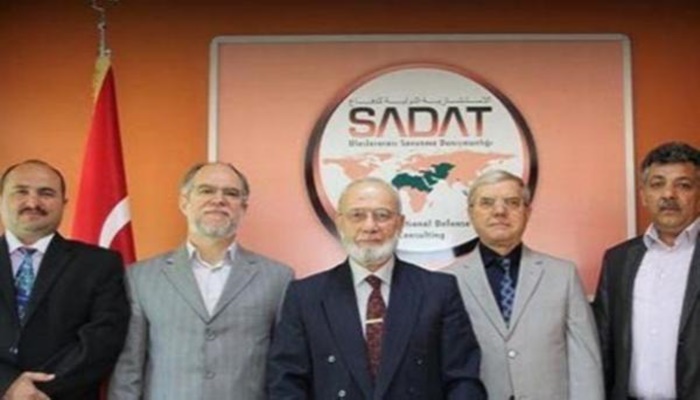Turkish businessman Melih Tanrıverdi seethes at the suggestion that his private defense consultancy has become Ankara’s secret weapon in wars across North Africa and the Middle East.
SADAT International Defense Consultancy has gained growing scrutiny over US allegations that it trains Syrians who then get dispatched to support pro-Turkish forces in war zones such as Libya.
The company’s manifesto says SADAT “aims to assist the Islamic world to take the role among the super global powers as a self-sufficient global power.
But Tanrıverdi tells AFP those accusations are part of a Western disinformation campaign designed to tarnish the image of Turkey and President Recep Tayyip Erdoğan.
“Our company has nothing to do with being a mercenary organization,” he said in a written interview.
“SADAT’s entry into the field of action as an unexpected actor against the global powers… explains the reason for this disinformation,” he said in English.
The firm was established in 2012 by Tanrıverdi’s father Adnan — a brigadier general whose service ended during a purge of Islamic influence from the traditionally secular military in 1996.
Its stealth role in promoting Turkey’s interests across the Muslim world has gained renewed attention as Erdoğan seeks to secure a foothold in Afghanistan following the US troop withdrawal.
Turkey proposed using private contractors to protect Kabul’s airport so that it can fully reopen to international flights — a role theoretically tailor-made for SADAT.
‘Conspiracy theory’
Tanrıverdi says only that SADAT “can provide consultancy and training services to security and military units that will ensure the security of the airport.”
Its span of proposed operations — colored green on a company logo showing a world map — stretches from North Africa to the Middle East and parts of central and southeast Asia.
In 2020, the US Department of Defense said SADAT sent teams to Libya to train Syrian fighters on behalf of Turkish-backed forces of the Government of National Accord (GNA) in Tripoli.
SADAT “maintains supervision and payment of the estimated 5,000 pro-GNA Syrian fighters in Libya,” a Pentagon report said at the time.
Tanrıverdi dismissed this and claims that SADAT funneled fighters to Azerbaijan in last year’s war with Armenia over disputed Nagorno-Karabakh as a “conspiracy theory.”
“SADAT has never been in Syria, Libya or Azerbaijan,” he said. “Do you really think we are professional enough to fool the global powers?”
Some analysts think they are.
‘Facilitator’
“There are credible sources that suggest SADAT plays a key role in training and mobilizing proxies in Syria and using them as mercenaries,” American University and Orion Policy Institute terrorism expert Suat Çubukçu told AFP.
The elder Tanrıverdi initially became Erdoğan’s senior security adviser after the Turkish leader survived a coup attempt in 2016.
Some believe SADAT offers the Turkish government plausible deniability about its role abroad.
A report by US Joint Chiefs of Staff Army officer Matt Powers called SADAT a “facilitator between Ankara and Syrian proxy fighters” that Turkey then sends to other war zones.
“There is a lot of speculation that Turkish intelligence uses cut outs to pay for proxies, giving a veneer of legitimacy to the use of Syrians in operations abroad,” the Foreign Policy Research Institute’s Middle East program director Aaron Stein told AFP.
“However, we have no idea how this actually works.”
Tanrıverdi refused to name any clients. “We operate on every continent, including Africa,” he said.
Ideological drive
Çubukçu said SADAT’s overtly political view of the world and lack of its own armed units distinguished it from Wagner — a Russian firm associated closely with the Kremlin that is also pushing into resource-rich Africa — or its US counterparts.
“SADAT has ideology-oriented and much more intertwined relations with its home government,” Çubukçu said.
But Tanrıverdi rejected speculation that his firm has grown into an informal part of the Turkish state.
He said SADAT needed state approval to “export services or defense industry products” but did not take instructions from ministries or Turkey’s MIT intelligence agency.
Although the elder Tanrıverdi no longer serves as Erdoğan’s security adviser — the company’s anger at the West lives on.
“Countries that come from thousands of kilometers away… spread fake news to accuse our president and his former chief adviser, Adnan Tanrıverdi,” the younger Tanrıverdi said.
AFP



